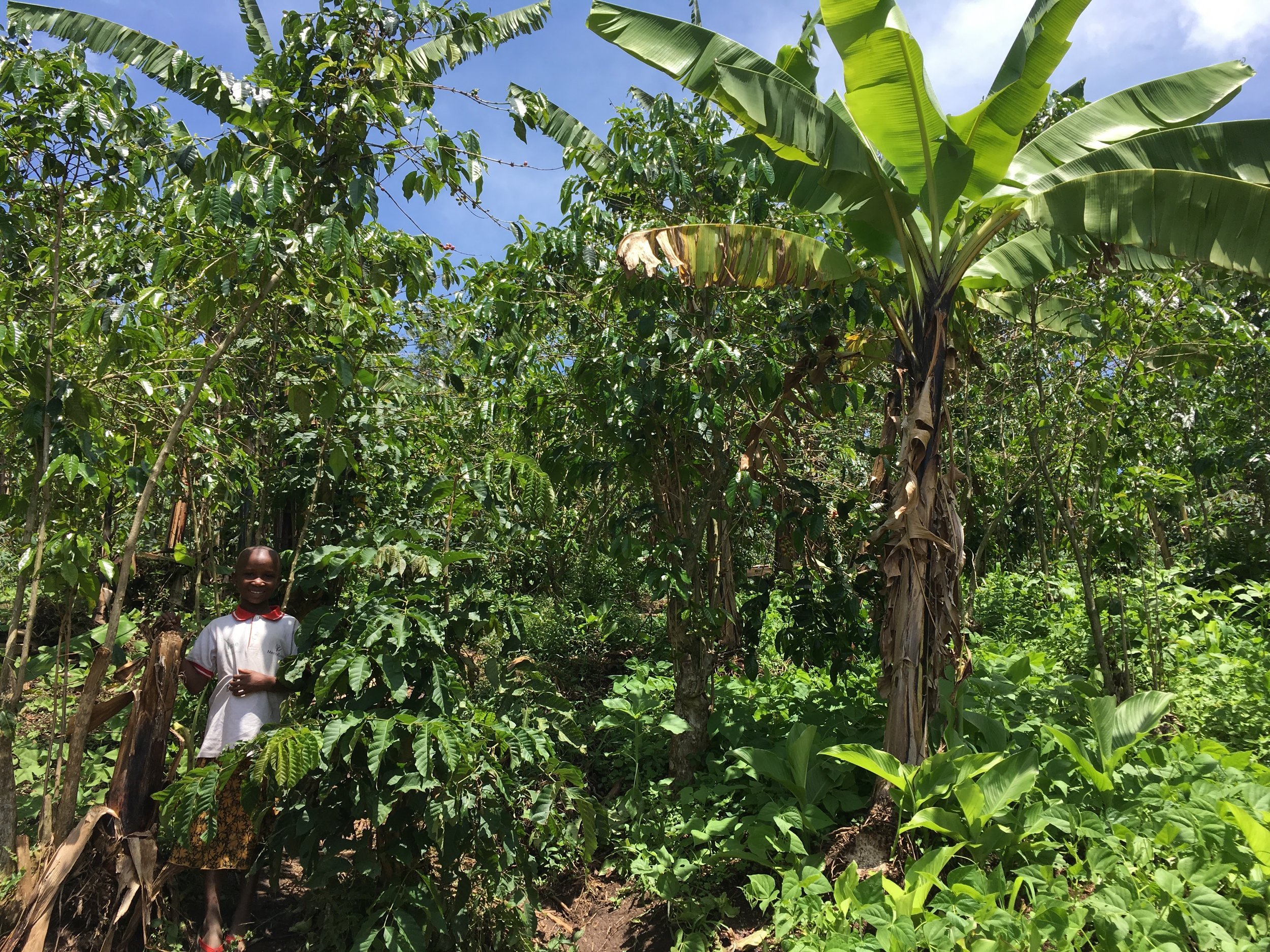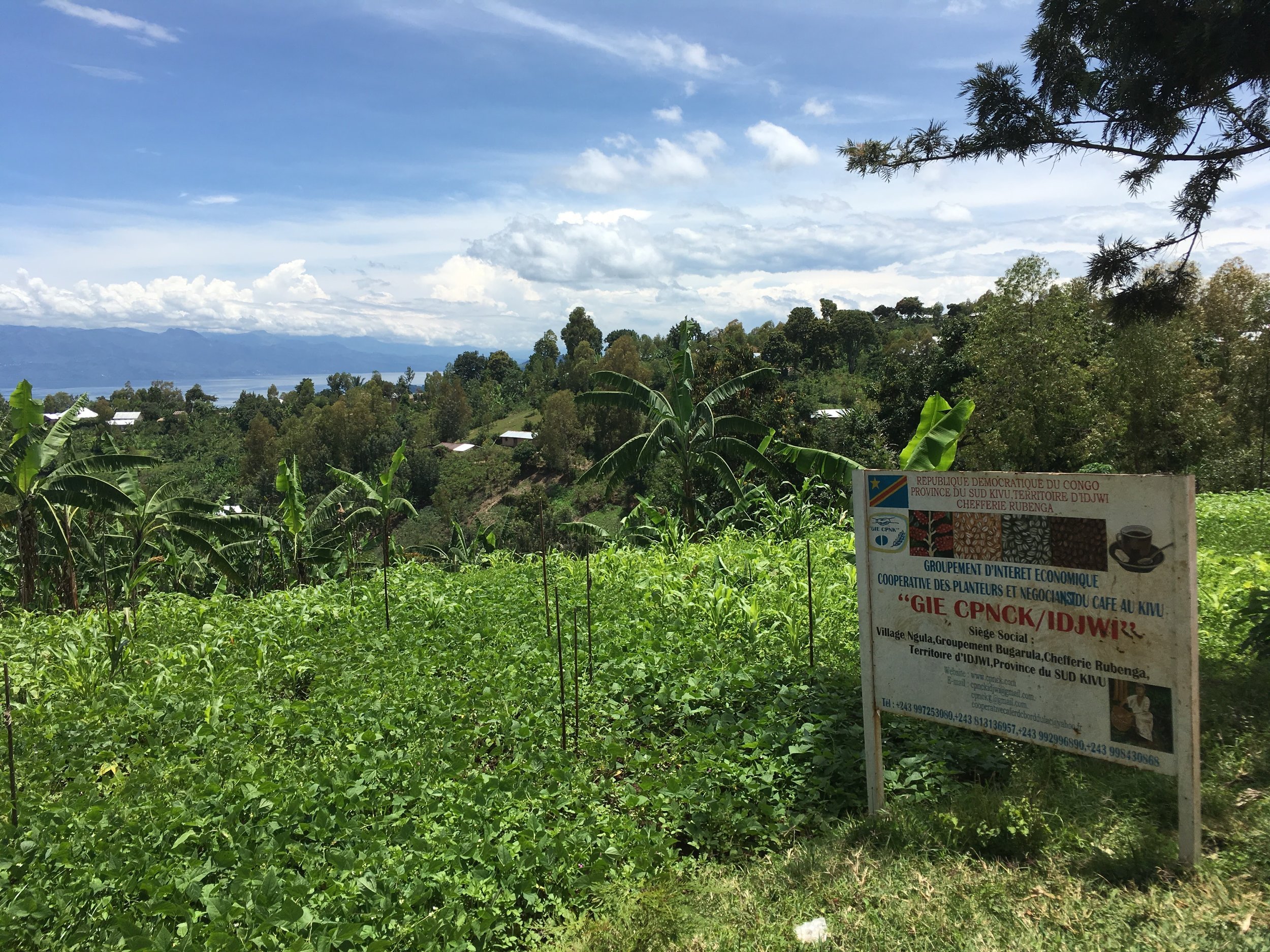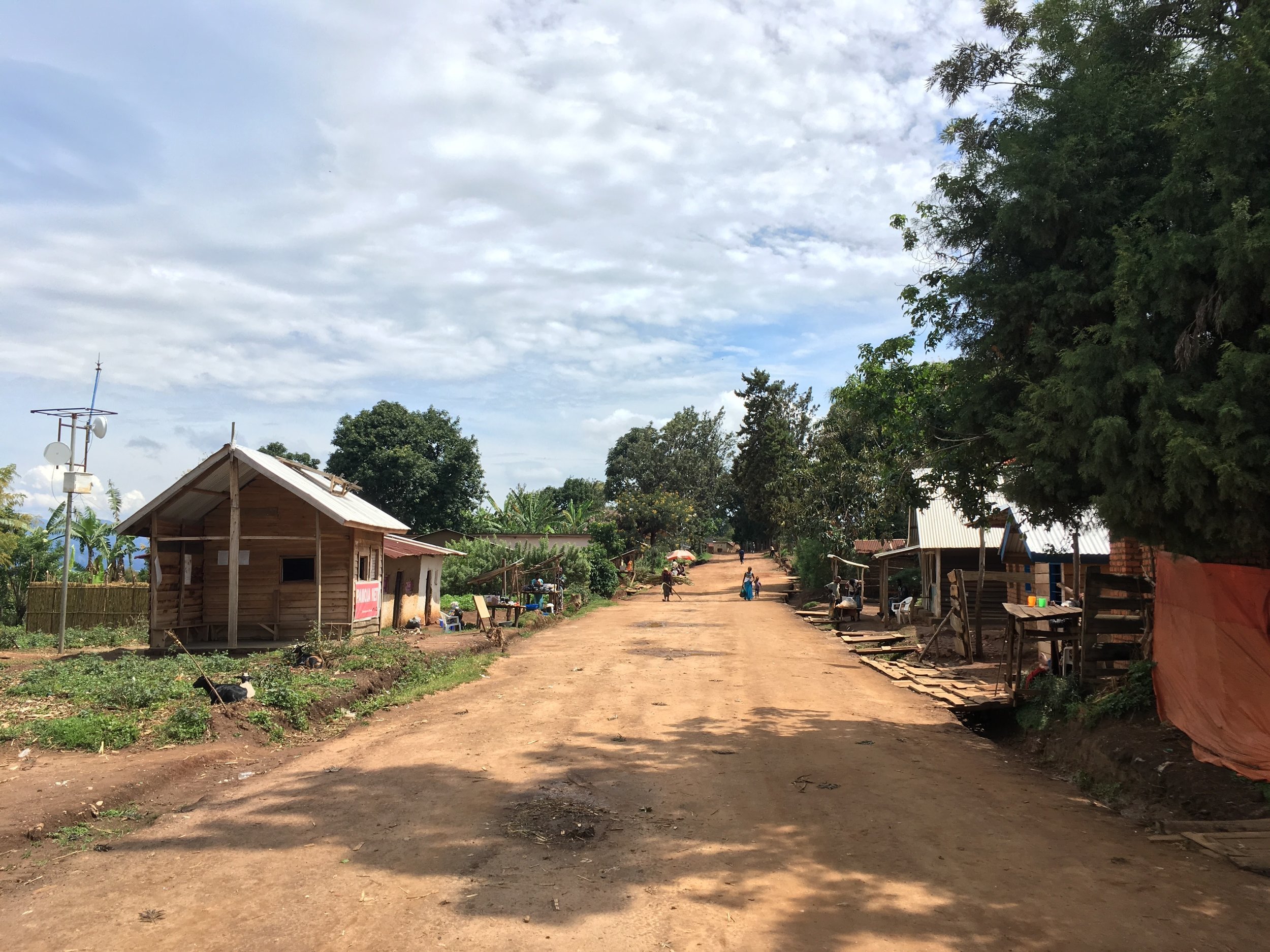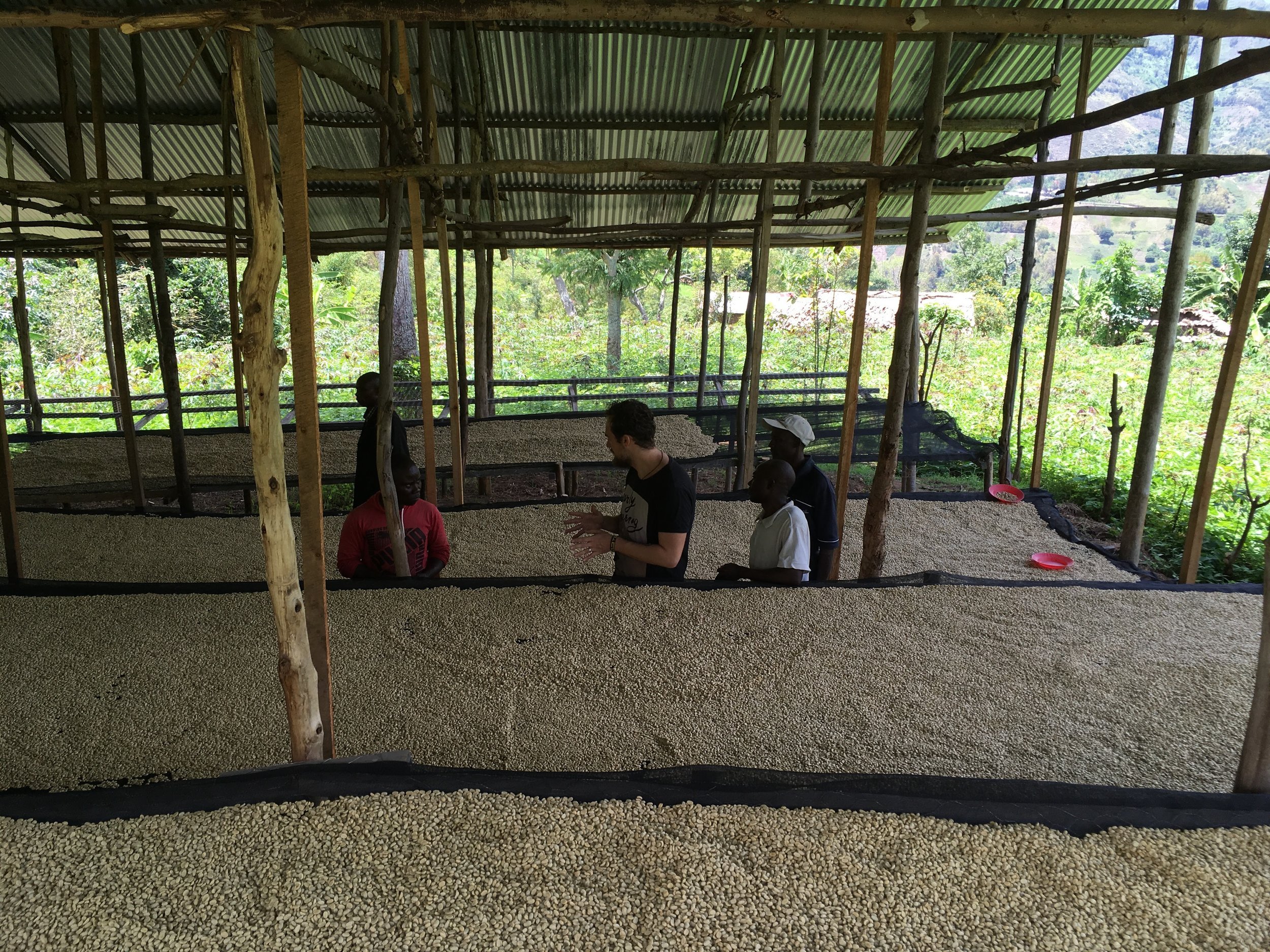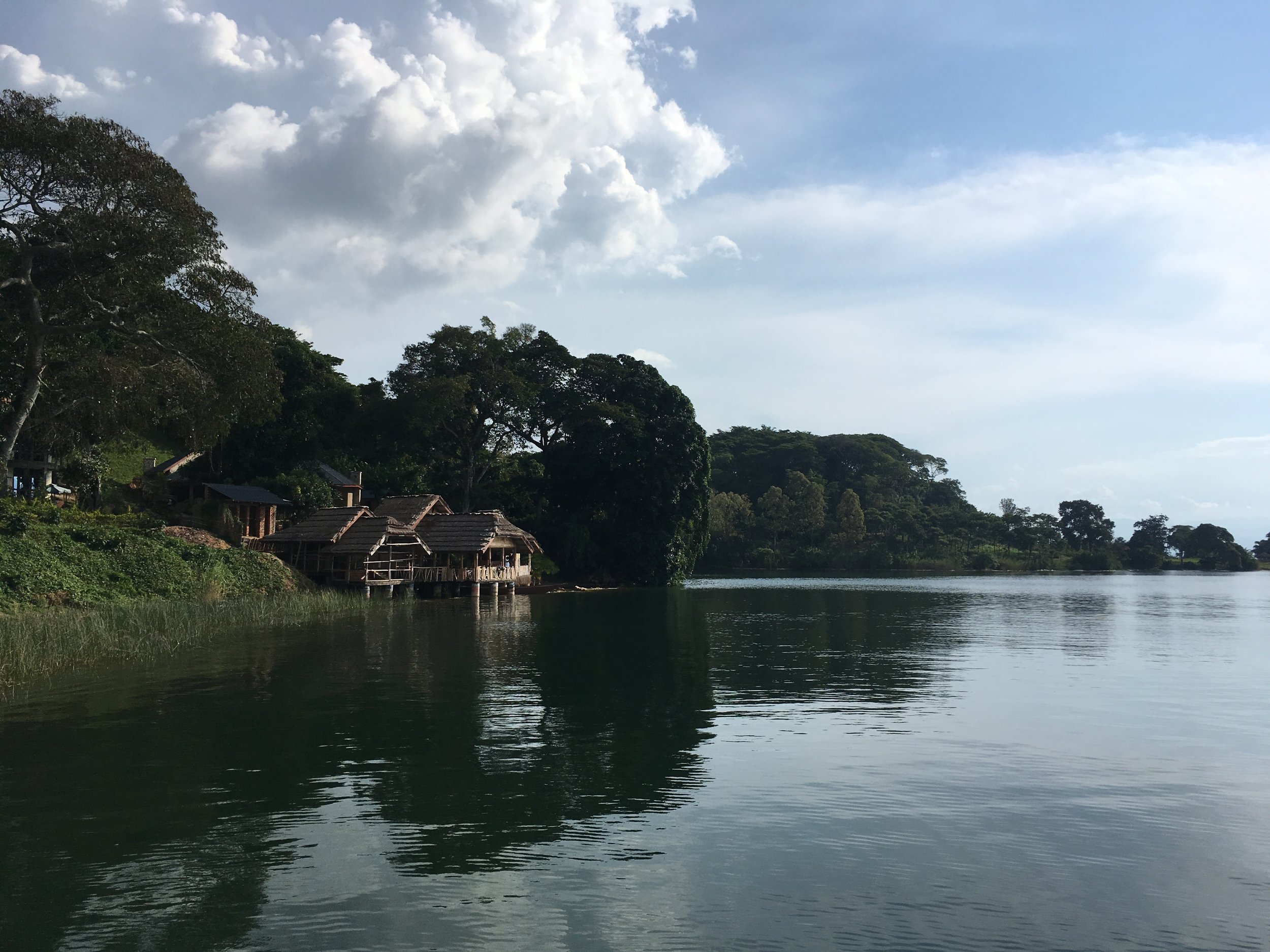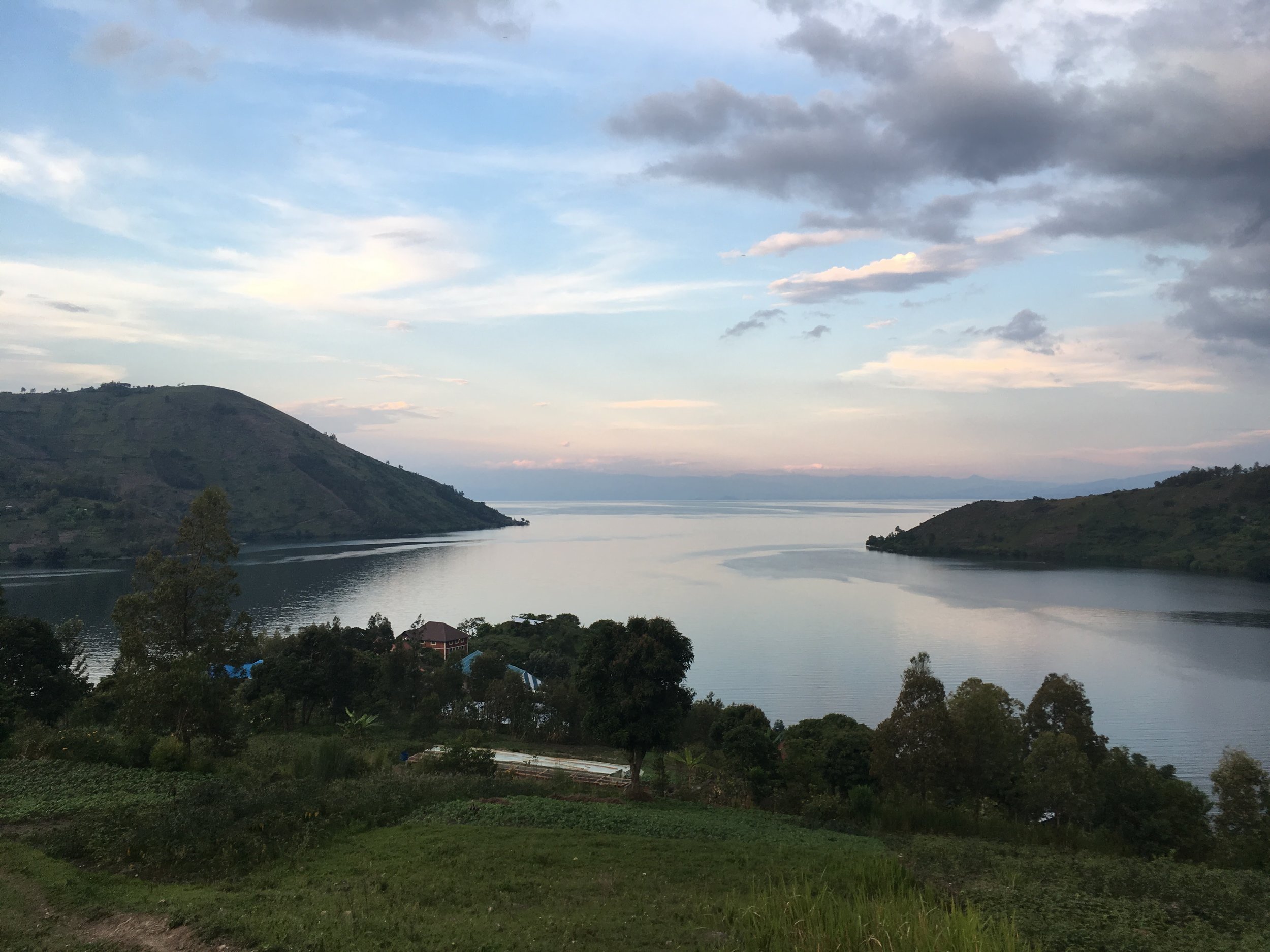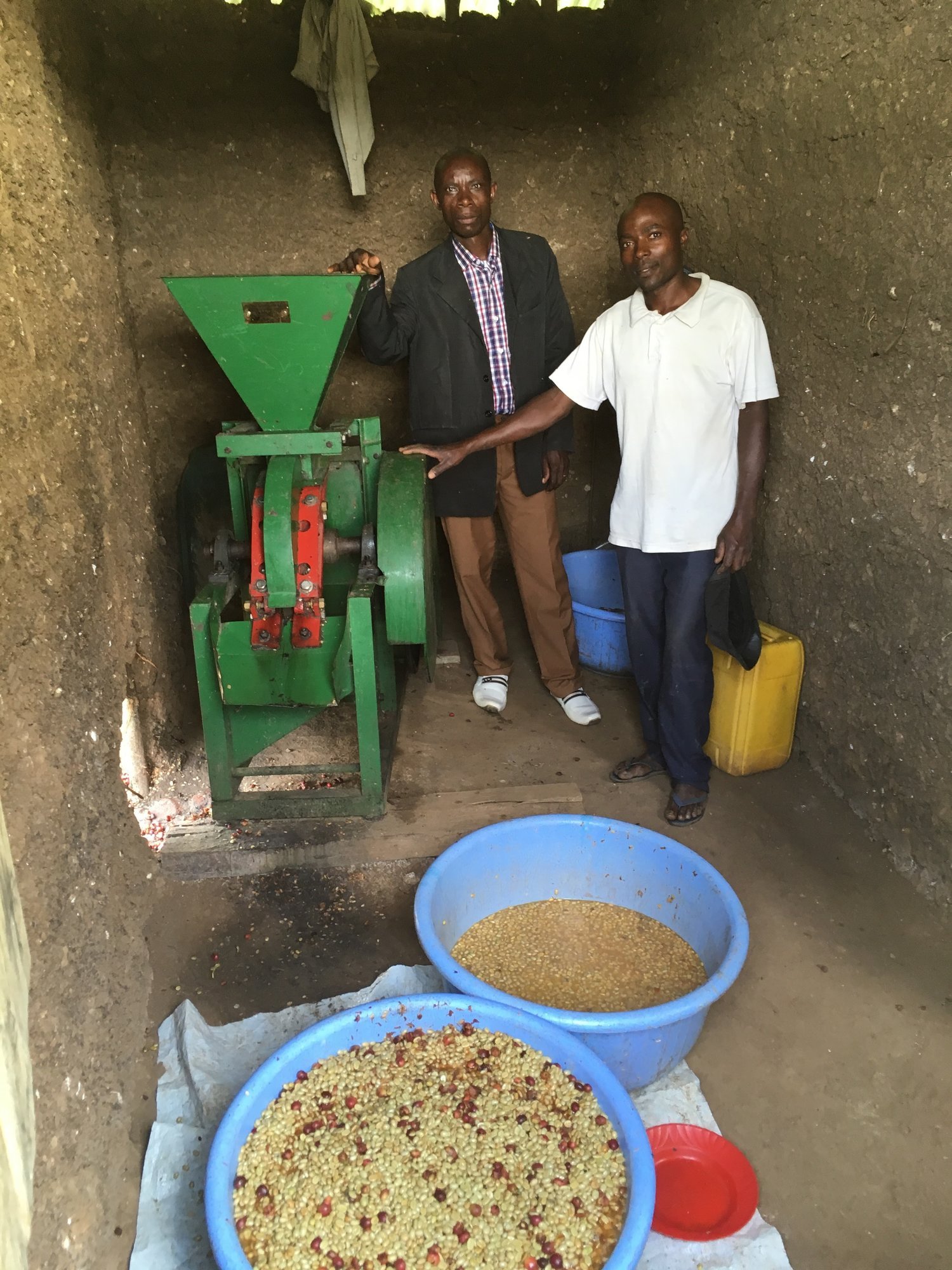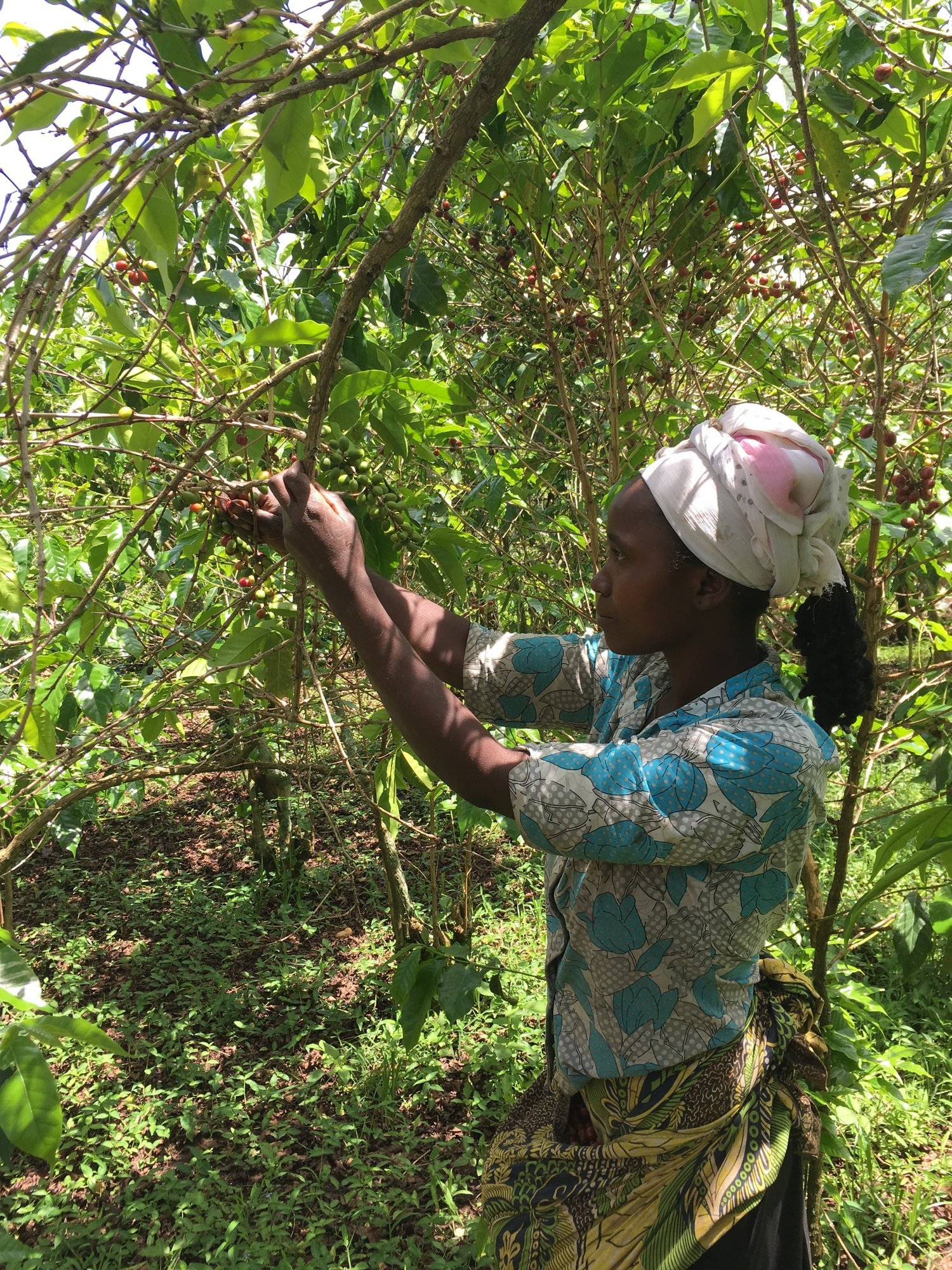Your personal Congolese coffee passport
NGULA WASHING STATION
WASHING STATION : Farmer group of SCPNCK Cooperative, Ngula Washing station
FARMERS : 200
LOCATION: Ngula, Idwji Island, Democratic Republic of Congo
CULTIVARS: Arabica JBM (Typica), Bourbon
ALTITUDE: 1,600 - 1,800 meters above sea level
EXPORTER: SCPNCK Cooperative
IMPORTER: This Side Up Coffees
ROASTER: Special Roast
COFFEE - A PEACEFUL PROTEST
The island of Idjwi is not a place you used to hear about often, but with the digital awakening of Africa and an influx of interest from the development community, we are starting to understand its equally tragic as wonderful history. A refuge for rebels, a smuggler's hotspot, a volcanic danger zone or the Kivu region's newest specialty coffee discovery - all describe this remote lake island accurately. In fact, the striking number of widows on the island was one of the main reasons for its coffee farming community to make a stand and organise itself to sell coffee independently through a cooperative structure. One of the coops that was created is our partner SCPNCK; and under the leadership of Gilbert Makelele, much good has happened. Children are being sent to schools, Universities because of increased income from coffee production. More women have started playing an active role in their household economy because of greater respect from their families and community. They have also observed the smuggling of coffee to Rwanda has reduced which used to be one of important reasons for violence. Better and good houses have been possible because of coffee within the community. Further, The group invested in solar powered electricity systems and are actively putting into practice sustainable and agroforestry practices such as organic fertilizers, shaded coffee, and erosion prevention. The future of CPNCK farmers includes opening bank accounts, a health center, school for all age groups as well as local hospital. They plan to expand the number of trees as well as plant climate resilient varieties to actively combat global warming in and around coffee areas by working together with their agronomists.
Ngula - coffee specs
what to taste for
Aroma: thick sugary caramel, cacao nibs
Body: full mouthfeel.
Acidity: freshly citric, with hints of dried fruits.
Aftertaste: full-bodied chocolate with pleasant sugars.
PROCESSING your coffee
Fully washed at micro-mills: wet fermented for 12 hours, washed with mountain water, shade dried and pre-sorted, then sun dried on raised beds. Naturals: first shade dried to 14%, then sun dried and consistently turned towards 11%.
ROASTING YOUR COFFEE
Special Roast uses a 22kg Probat UG22 roaster, that has been built in 1965. The roast time is 8 minutes to achieve a light roast. After the first crack, the coffee is quickly finished, to keep the citric fresh tastes in the cup, whilst also making space for the full bodies chocolates.
Relative PRICE BREAKDOWN
42%
The price farmers receive for their coffee cherries. This includes an extra € 1,75 is a premium that CPNCK will pay out partially to its members to discourage smuggling, the rest is to be invested in upgrading of the micro-mills.
25%
The cooperative’s work of milling, preparing the coffees to be exported, and organizing the export themselves.
13%
total shipping costs from Idwji island, through Rwanda and then Tanzania or Kenya, through customs and to our warehouse. We fill our containers with as much coffee as we can or hitchhike with other importers to keep these costs to a minimum.
15%
This Side Up compensation for spending time and resources bringing this relationship and coffee to life. Our work includes building relationships with origin partners in the field, finding markets for the coffees, linking farmers to rural banks and NGO partners, arranging the export and import channels, Q grading, sampling.
5%
Average financing cost we have to pay lenders - simply because we don’t have the money in the bank to buy such large amounts of coffee all at once. This ensures immediate payment to the farmers when the coffee leaves the farm or port.



